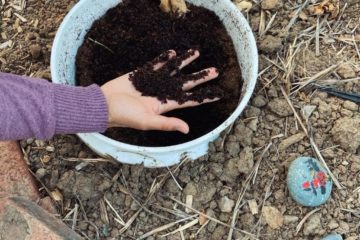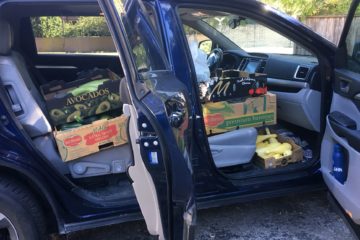Written by Alexa Kristensen, Grant Writing and Development Intern
Researching permaculture yields a mixture of at-home gardening guides, sustainability philosophies, and the occasional article acknowledging indigenous land practices. The first two kinds of search result—at-home gardening practices and anything “green”—typically neglects the foundational work of indigenous communities in creating permaculture practices. The hits that mention indigenous land stewardship often do not name the communities, instead reducing indigeneity to a monolith—something without a history or without difference. At Each Green Corner, we want to thank our local and national communities for their contributions in land management, sustainable urban agriculture, and food justice. We would not be here without them.
In Arcata, California, the Potawot Community Garden is 20 acres and part of a coastal prairie in the ancestral Wiyot district of Gudinih. The Potawot garden explores the relationship of food and land stewardship with health and medical care. To care for the land and to be accountable to the effects our actions have on the land is necessary for fostering a healthy lifestyle.
Near Brooks, California, Yocha Dehe Wintun Nation cares for 250 acres of farmland, where land stewards implement “sustainable farming practices, including use of biological controls, mulching, drip irrigation, and crop rotation.” In addition to using these sustainable farming practices—terms EGC is familiar with—the Yocha Dehe also organize the Tewe Kewe Cultural Center, focused on language revitalization and protections of historical sites.
In the East Bay, the Ohlone people care for Lisjan, which is “the first piece of land repatriated to Sogorea Te’ within the territory of Huichin.” Lisjan uses rain water catchment systems and their garden produces sage, tobacco, mugwort, and soap root alongside different edible fruits and vegetables. The village supports and is supported by activists from Standing Rock. In partnership with Lisjan, Rammay is another urban garden in West Oakland, which offers similar services and supports the work of Oakland’s American Indian Child Resource Center.
To learn more about indigenous land practices, “Tending the Wild” is an award winning documentary fully available online. From the website: “‘Tending the Wild’ shines light on the environmental knowledge of indigenous peoples across California by exploring how they have actively shaped and tended the land for millennia, in the process developing a deep understanding of plant and animal life. This series examines how humans are necessary to live in balance with nature and how traditional practices can inspire a new generation of Californians to tend their environment.”
For additional perspectives:
- For the history of indigenous genocide in the Bay Area, refer to the Bay Area Equity Atlas.
- Subscribe to Kanyon Konsulting’s Patreon and read through the Ohlone Resource Introduction.
- Watch Gather, “an intimate portrait of the growing movement amongst Native Americans to reclaim their spiritual, political and cultural identities through food sovereignty, while battling the trauma of centuries of genocide.”
- Read David Uahikeaikalei’ohu Maile’s piece on the relationship between the activists at Standing Rock and Mauna Kea.
- Donate to Navajo Nation’s Chinle Planting Hope’s GoFundMe to deliver emergency food relief to the elderly.
- Learn more about Navajo Nation’s water crisis.
- For First Nations perspectives in Canada, read about the Wet’suwet’en pipeline conflict.



0 Comments